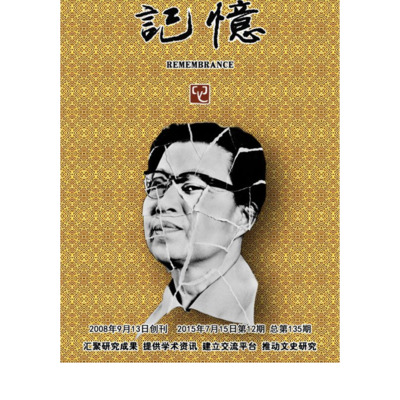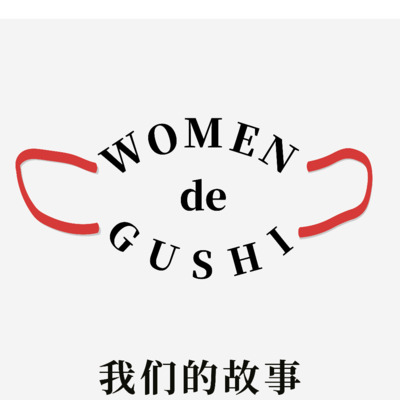
Our Stories: Women in COVID-19 in China
This is the fourth issue of the “Our Stories” series published by WeChat public account “We and Equality,”, a compilation of 20 oral narratives from Chinese people who lived through the COVID-19 pandemic firsthand, and a personal reflection by the author of this issue, Qiao Yilin. The editors hope to “document the history of ordinary people, to combat the forgetting that should never have happened, and to present the real experiences, feelings, and voices of all of us–to help us remember what has happened to us.”
The interviewees in this volume are diverse, including those of different ages, educational background, ethnicities, physical and mental status, sexual orientations,marital status, and mobility. They shared their own memories of the pandemic, including facing threats to their survival due to food shortage, not being able to take anti-depression medication due to the lockdown, international students having a hard time returning to China, people with hearing impairments facing various inconveniences, and the discrimination faced by those who had recovered from COVID-19Although primarily focusing on experiences and feelings during the pandemic, many interviewees shared additional personal stories that provided useful background information for readers to understand their situation during the pandemic.
In addition to these personal narratives, “We and Equality” also published a 44-question “Women's Mental Health Questionnaire” on WeChat, asking about respondents’ experience during the pandemic, including their sense of belonging, care/housework commitments, sleep quality, emotional and mental status, feeling about quarantine, lockdown, illness or death of loved ones, and attitudes towards the government’s COVID-19 policies. The questionnaire received a total of 453 valid responses. Based on the responses, “We and Equality” has compiled a bilingual data analysis report.
”We and Equality" is a grass root project started in November 2016. Through the WeChat public account, they publish articles weekly to raise awareness and share knowledge on gender-related issues in China. They also organize in-person activities bi-weekly where people gather for in-depth discussion, and foster a community to promote gender equality.
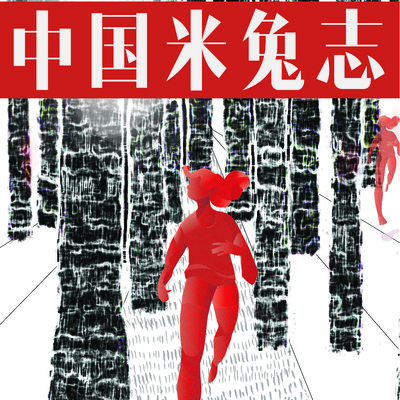
#MeToo in China Archives 2018.1-2019.7
On New Year's Day 2018, Beihang University graduate Luo Xixi took the lead in breaking China's silence on the issue of sexual harassment when she publicly reported on social media that Beihang professor Chen Xiaowu had sexually harassed her. This was the first major event in China’s #Metoo movement, which has since spread from colleges and universities to other fields. #Metoo provoked an unprecedented discussion in China, and the issues of feminism and sexual harassment attracted a rare and widespread attention, with a variety of complaints, comments, studies, and advocacy articles springing up all over the internet.
<i>#MeToo in China Archives 2018.1-2019.7</i> is a compilation of sexual harassment-related articles written between January 2018 and July 2019. This archive is massive, totaling more than 2,500 pages, and is divided into three main volumes: “#Metoo in Higher Education”, “#Metoo in other fields”, and “#Metoo discussions’. Volume I and Volume II consist of individual #Metoo cases, arranged in chronological order. Articles in volume 3 can be broadly categorized into general reviews, investigative reports, personal stories, advocacy and activism, tools and resources,etc. During the #Metoo movement, many liberal public intellectuals questioned the movement, likening it to big-character posters during the Hundred Flowers campaign, and arguing that it might lead to the proliferation of wrongful convictions. It triggered heated debates, and this archive also contains a number of related articles.
The process of compiling this archive itself became an act of resistance, given the severe repression on freedom of expression and social movements. The editorial team faced tremendous challenges in collecting articles that had been deleted or published as images to bypass online censorship. It spent a great deal of time and personnel piecing together scraps of information and transcribing words in images. Reading traumatic personal stories - including those about the hardships in seeking remedies - caused psychological trauma for the editors themselves.
Nevertheless, #Metoo has also a process of collective healing, in which women with shared experiences saw each other, realized the structural problems behind sexual violence, and gained the strength to move on and push for change. Finally, during the compilation process, the editorial team also benefited from archiving efforts made by other websites and individuals, demonstrating that the rescue and preservation of people’s history is a collective and collaborative task.
This archive is published on https://chinesefeminism.org/.
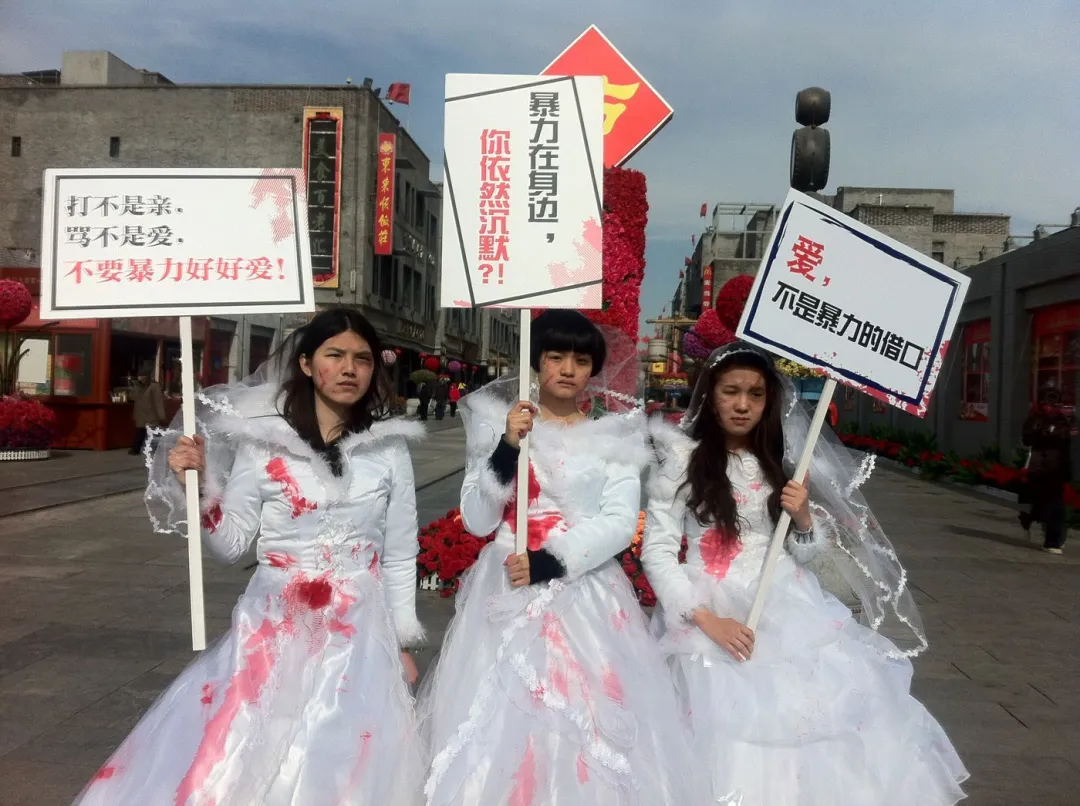
A Brief History of Young Feminists Activism in China
Since 2012, a group known as the “Young Feminist Activists”, has emerged in China. They often use performance art in public to promote gender equality issues; they question injustice, and engage in policy advocacy to advance women’s rights. They make use of social media and the internet to provoke public debate, build public support, and mount pressure for social and self-transformation in China. Their direct actions created new space for activism in China's tightening political environment.
This article provides a detailed overview of the actions initiated by the young feminist activists between 2012 and 2019. These actions cover a wide range of gender issues, including but not limited to sexual assault/harassment, gender-based violence, gender equality in employment and schooling, gender stigma and stereotyping, marriage autonomy, and lesbian rights and interests. These actions have not only raised the public's awareness of gender equality, but also promoted the introduction of gender equality legislation and policies.
A turning point came In 2015 when five young feminist activists were arrested and detained for 37 days for planning to hold an anti-sexual harassment campaign on March 8, Interantional Women's Day. Since then, young feminist activists have almost completely lost their space on the streets. However, as can be seen from this article, feminist activism did not disappear, but sustained and continued in a variety of ways, including the creative use of social media and leveraging transnational solidarity and action.
In the article, the author says, “Young feminist activists should not be forgotten by the public, especially in an environment where censorship has intensified in the past years, civil society has nearly collapsed, and it is extremely difficult for people to speak out. While there is a seeming increase in discussion of feminism in domestic social media, it has been severely depoliticized, feminist activists are marginalized and stigmatized, and their voices silenced. Therefore, it is particularly important to tell the stories of young feminist activists and popularize knowledge about the domestic feminist movement. It is important to let more people see the spirit and achievements of the new generation of Chinese feminists, and understand the important gender issues they have promoted.”
The article is accompanied by numerous images, videos and links to other resources for further reading.
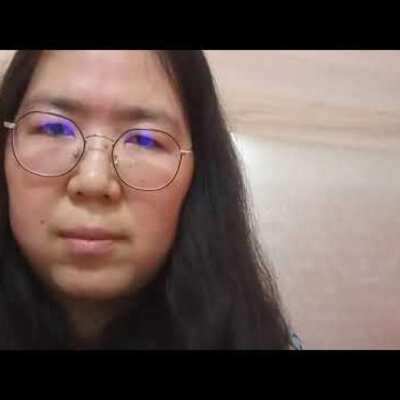
Zhang Zhan Video Series of COVID-19 Outbreak in Wuhan
On 23 January 2020, the Chinese government imposed a lockdown in Wuhan. On February 1, Zhang Zhan took a train from Shanghai to Wuhan. From then until her arrest by the Shanghai police on May 14, Zhang Zhan continued to document the situation in Wuhan on video at the frontline of the pandemic. On February 7, she launched a YouTube channel under her real name and released her first video, “Claiming the Right to Freedom of Expression,” in memory of Dr. Li Wenliang and in solidarity with citizen journalists Chen Qiusi and Fang Bin, who had been taken away for reporting on COVID-19. She said in the video: “If Chinese citizens still do not have the right to freedom of expression,then we are all Li Wenliang." On the same day, Zhang Zhan received a phone call from Shanghai's state security agency threatening to quarantine her if she continued to speak out online, but she did not give in. By the time she was arrested, Zhang Zhan had posted 122 videos on <a href=”https://www.youtube.com/@%E5%BC%A0%E5%B1%95-y3p/featured”>her YouTube channel</a>. In her videos, she traveled around Wuhan at the height of COVID-19, documenting empty streets, the roar of funeral home incinerators late at night, the desperation of patients with no place to turn for medical care, the arbitrary deprivation of residents’ freedom of movement, and the chaotic and hypocritical nature of government policies. These videos show the world the reality of Wuhan in the early days of the outbreak, making thema precious historical record.

Remembering Lin Zhao
Independent director Tiger Temple began shooting this film in 2010 and completed it in 2012, with subsequent revisions. The film features interviews with Lin Zhao's former lover Gan Cui as well as interviews with several independent scholars such as Qian Liqun and Cui Weiping. It is a powerful addition to Lin Zhao's memory. This film was selected as one of the top 20 finalists in the 2012 Sunshine Chinese Documentary Awards.

In Search of Lin Zhao's Soul
Hu Jie narrates the life of Lin Zhao, a Christian dissident who was condemned as a Rightist in the late 1950s and executed during the Cultural Revolution. Prior to becoming a mentcritic of the government, Lin Zhao was an ardent believer of communism. She demonstrated talent in writing and speaking as a star student in Peking University. However, after criticizing the government in 1957 during the Hundred Flowers Campaign, she was cast as anti-revolutionary. Despite the government’s attempts to silence her, Lin Zhao continued to speak and write publicly, including contributing two epic poems to Spark, an underground student-run journal. In 1960, she was arrested, and despite being released briefly in 1962, spent the rest of her life behind bars, under extremely poor living conditions. Nevertheless, she continued to write in prison, sometimes with her blood. In 1968, at the age of 36, she was executed by a firing squad.
In this documentary, Hu Jie showcases many of Lin Zhao’s surviving writings and poetry. These pieces often contain criticisms of the communist regime, as well as commentary on policy issues pertaining to labor and land reform. In making this film, Hu Jie traveled around China to interview friends and associates of Lin Zhao, who knew her as a student, activist, or prisoner. This documentary includes excerpts from interviews with them, which inform us about Lin Zhao’s personality and motivations.
This documentary has contributed to a widespread revival of interest in Lin Zhao, who had almost become a forgotten figure until the film’s appearance.

Oral Interviews with Global Feminists
As one of China's foremost feminist activists and thinkers, Ai was interviewed by the Global Feminisms Project at the University of Michigan. In this interview, Ai talks about her upbringing as well as about the current state of feminism in China and its outlook.

The Goddess of Freedom of the Chinese Nation -- An Anthology of Essays in Honor of Lin Zhao 40 Years After Her Death
Lin Zhao, formerly known as Peng Lingzhao, a native of Suzhou, was admitted to the journalism department of Peking University in 1954, but was classified as a Rightist in 1957. She was arrested and imprisoned in October 1960 because of her involvement with the underground magazine <i>Spark</i>. In 1965, Lin Zhao was sentenced to 20 years' imprisonment for "counter-revolutionary crimes." On April 29, 1968, she was sentenced to death and executed on the same day at the age of 36. This book is a collection of more than sixty articles written in memory of Lin Zhao.

Wuhan Diary
This collection of diary entries by Wuhan-based filmmaker and activist Ai Xiaoming showcases her life during the early months of the COVID-19 pandemic, from February to March 2020. In these diary entries, Ai shares the daily challenges which many Chinese people grappled with, as well as their hopes and questions for the government and Chinese society at large. Her diary also examines problems regarding the expanding powers of the Chinese government. The first entry of Ai’s diary was published in English by the New Left Review, which can be found here:
https://newleftreview.org/issues/ii122/articles/xiaoming-ai-wuhan-diary.

Spark
<i>Spark</i> tells the story of a group of young intellectuals who risked their lives to voice their opinions about the Chinese Communist Party in the 1950s and 1960s. Following the Hundred Flowers Campaign of 1957, many intellectuals were branded as Rightists and banished to work and live in rural China. A group of students from Lanzhou University were among those sent to the countryside. There, they witnessed mass famine which resulted from government policies to collectivize agriculture and force industrialization in rural China. Shocked and angered by the government’s lack of response to the Great Famine, these students banded together to publish <i>Spark</i>, an underground magazine that sought to alert the Chinese population of the unfolding famine. The first issue, printed in 1960, included poems and articles analyzing the root causes of failed policies. However, as the first issue of <i>Spark</i> was mailed and the second issue was edited, many of these students, along with locals who supported the team, were arrested. Some of the key members of the publication were sentenced to life imprisonment and later executed, while others spent decades in labor camps.
In this 2014 documentary, Hu Jie uncovers the stories of the people involved in the publication of <i>Spark</i>. He conducts interviews with former members of the magazine who survived persecution, and also shows footage of the manuscripts of the magazine. A digital copy of the original manuscript of the first volume of <i>Spark</i> is also held on our website.
This film was awarded the Special Jury Prize for Chinese Documentary at the 2014 Taiwan International Documentary Film Festival and the Award of Excellence in the Asian Competition. Later, it won the Independent Spirit Award at the Beijing Independent Film Festival.

Garden of Paradise
The year 2003 was known as the birth of the Weiquan—the rights defense–movement, which was marked by the Sun Zhigang incident in Guangzhou. At the same time, a campaign began to get justice for Huang Jing, a teacher from Hunan who was sexually assaulted and killed by her boyfriend. The campaign involved the victim’s family, netizens, feminist scholars and activists, and lasted for several years. This documentary records the process of Huang Jing’s case from filing to post-judgement, and analyzes the broader issue of sexual violence against women in China.
The films in this series are in Chinese with Chinese subtitles.

The Central Plains
Due to poverty in rural areas in Henan Province—part of China’s Central Plains—many farmers contracted AIDS by selling their blood. This documentary dives into the lives of these AIDS patients, depicting the manner in which they cope with life, officials’ responses, and the stories of volunteers who helped the infected villagers. The filmmaker visited several villages with high incidence of AIDS, interviewing and recording people’s accounts of how the “plasma economy” arose. This documentary presents the living condition of families and individuals, especially women and children, who contracted AIDS due to blood donation and blood transfusions, and demonstrates the formation of grassroots organizations.
This film is in Chinese with both Chinese and English subtitles.

Postcard
After retiring from her job as a cadre, Wang Lihong fulfilled what she saw as her civic responsibility to become more active in women’s rights in China, especially the protection of their legal rights. In 2009-2010, she became involved in the “Fujian Netizen Case,” which resulted in the arrest of three human rights activists, who all sought to investigate the death of a 25-year-old women believed to have been murdered in a gang rape by men associated with the local police. Wang Lihong wrote letters to the General Secretary of the Fujian Provincial Committee of the Communist Party of China every day for nine consecutive days, calling on the authorities to let them go home for the New Year. For this reason, she was criminally detained by the authorities in March 2011 on suspicion of "picking quarrels and provoking trouble." The case was heard by the Beijing, Chaoyang District People's Court on August 12; nearly a month later, on September 9, the court issued a guilty verdict and sentenced Wang Lihong to nine months in prison. The film documents her case, and raises questions about the accountability of the local government and police. Another one of Ai Xiaoming’s films, “Let the Sunshine Reach the Earth,” documents Wang Lihong’s trial process in more detail.
This film is in Chinese with Chinese subtitles.
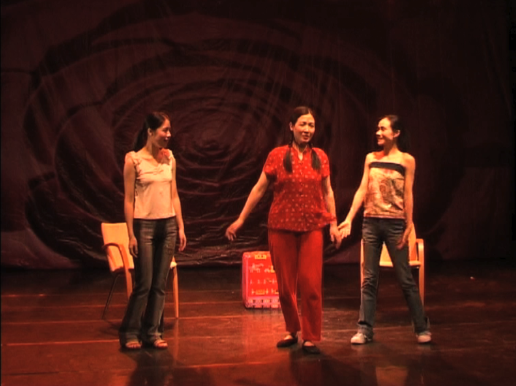
The Vagina Monologues -- Stories Behind the Scenes
<i>The Vagina Monologues</i> is a pioneering feminist drama created by the American playwright Eva Ensler. In 2003, teachers and students at the Gender Education Forum of Sun Yat-sen University in China adapted the play and added artistic interpretations of Chinese women's gender experience. The adapted play had its first performance at the Guangdong Provincial Art Museum. This documentary records the attitudes of governments across China towards the play as well as women's perceptions of the play and its connection with their personal experiences. It also highlights the current political and cultural ecology of China.
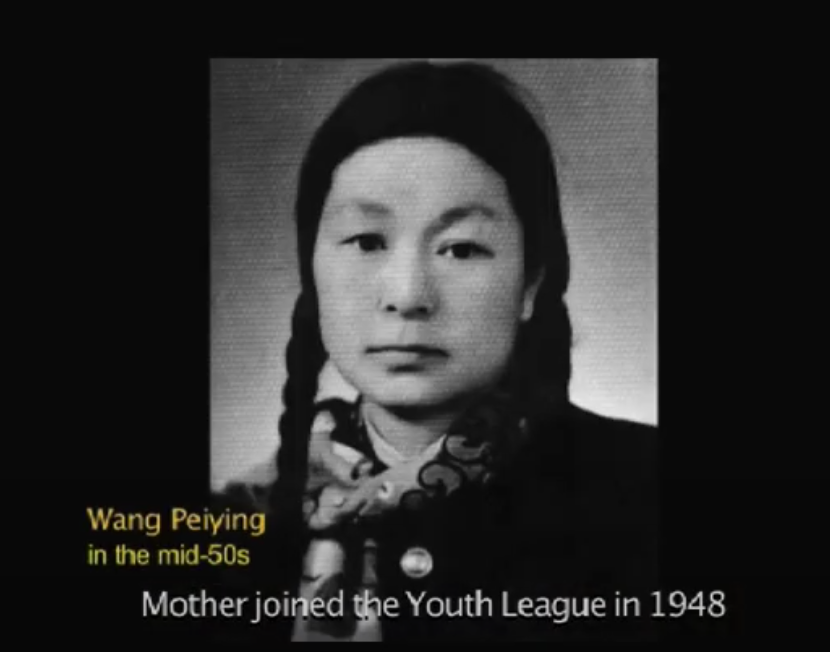
My Mother Wang Peiying
On January 27, 1970, Wang Peiying, a cleaner at a kindergarten in Beijing, was sentenced for counter-revolutionary crimes at a 100,000-person public trial held at the Workers' Stadium in Beijing. She was then taken to the execution ground along with a dozen other political prisoners to be executed by firing squad. Wang Peiying was strangled to death in the torture wagon because she preferred to die rather than give in and shout slogans. Forty years later, her daughter, Kexin, began to search for her mother's story. Through her mother's coworkers, friends in distress, and the task force, she gradually discovers her mother's experience as an active counterrevolutionary. In order to protect her conscience, Wang Peiying chose to stand up for her dignity and freedom to tell the truth, and willingly endured brutal torture. The documentary reflects the brutality of the Cultural Revolution and the destruction of humanity.

Care and Love
This film records the story of Liu Xianhong, a woman from rural Xingtai, Hebei, who contracted AIDS through a blood transfusion in the hospital and decided to publicly disclose her identity and sue the hospital. After fighting in the courts, she finally received compensation. This documentary demonstrates the surging awareness of civil rights in rural China at the grassroot level through depicting the experiences of several families and the concerted efforts of patients to form “care” groups to collectively defend their civil rights. Due to public awareness, media intervention, and legal aid, the government also introduced new policies to improve the situations of patients and their families.
This film is in Chinese with both English and Chinese subtitles.
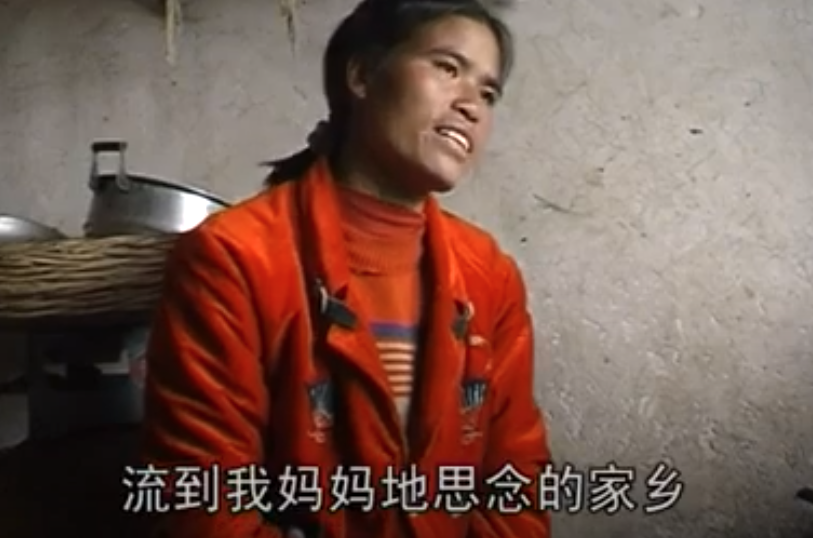
Mountain Songs from the Plains
Luo Xiaojia, a young Yunnan Yi girl was trafficked to the plains of Shandong at the age of 17 and forced to marry a young farmer in the area. The film documents her family life in the unfamiliar Shandong countryside and her longing for home. In her tenth year in Shandong, she finally fights for the opportunity to return home. After a 4,000-kilometer journey, she returns to her hometown of Yunnan and sees her mother, whom she misses day and night. However, she struggles with conflicting emotions, and returns to Shandong with a mountain song that her mother sings for her. This movie reflects the sad fate of trafficked women in China and the social psychology that follows these tragedies.

Spark, Issue 1
<i>Spark</i> was an underground magazine that appeared in the Tianshui area of Gansu Province in northwestern China during the 1959-1961 Great Famine. The magazine was lost for decades but in the late 1990s began to be republished electronically, becoming the basis of documentary films, essays, and books.
In 1959, the Great Famine was spreading across China. It was witnessed by a group of Lanzhou University students who had been branded as Rightists and sent down to labor in the rural area of Tianshui. They saw countless peasants dying of hunger, and witnessed cannibalism.
Led by Zhang Chunyuan, a history student at Lanzhou University, they founded <i>Spark</i> in the hope of alerting people to the unfolding disaster and analyzing its root causes. The students pooled their money to buy a mimeograph machine, carved their own wax plates, and printed the first issue. The thirty-page publication featured Lin Zhao's long poem, "A Day in Prometheus's Passion." The first issue also featured articles, such as "The Current Situation and Duty," which dissected the tragic situation of society at that time and hoped that the revolution would be initiated by the Communist Party from within.
The students planned to send the magazine to the leaders of the provinces and cities with a view to correcting their mistakes. But before the first issue of Spark was mailed and while the second issue was still being edited, on September 30, 1960, these students in Wushan and Tianshui were arrested, along with dozens of local peasants who knew and supported them. Among them: Zhang Chunyuan was sentenced to life imprisonment and later executed; Du Yinghua, deputy secretary of the Wushan County Committee of the Chinese Communist Party, was sentenced to five years' imprisonment for having interacted with the students, and later executed. Lin Zhao was detained and also executed. Other key members, such as Gu Yan, Tan Chanxue, and Xiang Chengjian, were all sentenced to long years in labor camps.
In the 1990s, Tan Chanxue devoted herself to researching historical information and figures to bring this history to life. She found in her personnel file (<i>dan'an</i>)photographs of the magazine, as well as self-confessions and other evidence used in the students' trial. Eventually, the photos were collated into PDFs, which began to circulate around China.
Editors' note: This site the original handwritten version and a PDF of all the articles from the first issue of <i>Spark</i>. We will also make available transcripts of the essays in Chinese and are searching for volunteers to translate the texts into English. Please contact us if you're interested in helping!

